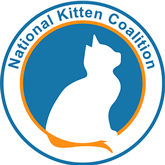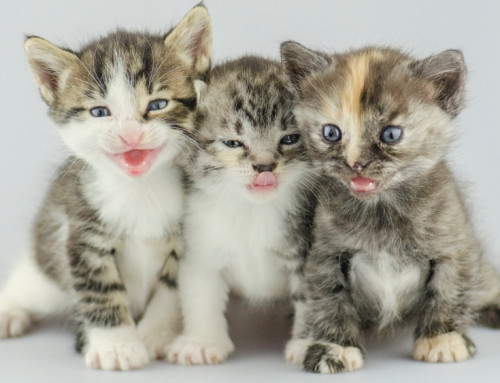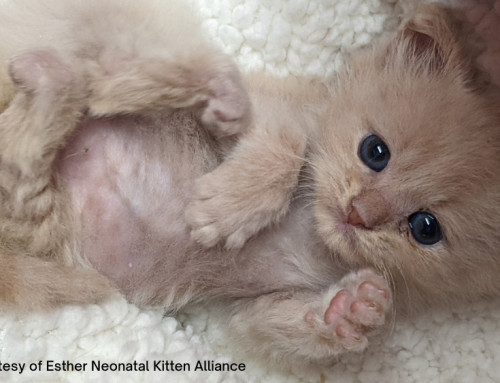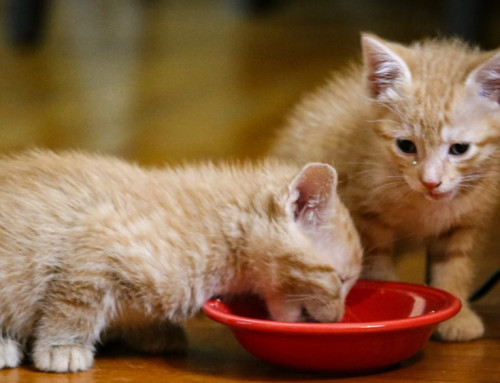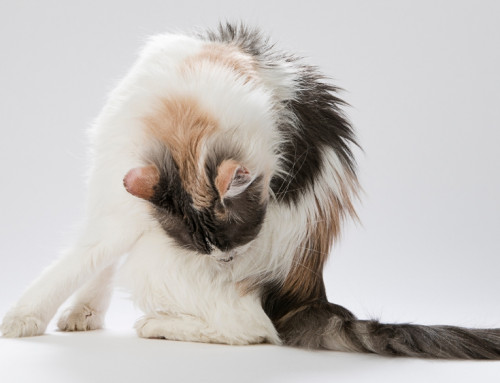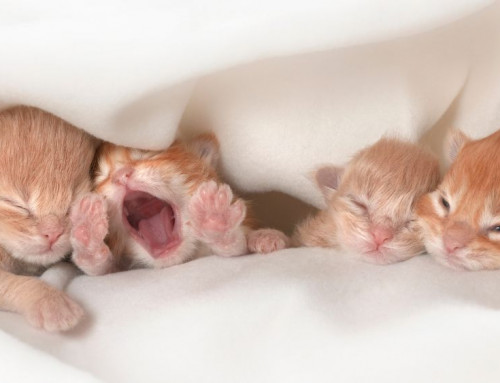Share this resource or email it to a friend!
In part 1 of this series on Critical Care for Kittens, we discussed hypothermia. Another danger to kittens is hypoglycemia. Hypoglycemia, low blood sugar (glucose), can occur when kittens don’t get enough food per meal or have been without food for several hours, Glucose is the body’s fuel, and kittens need it regularly since their bodies aren’t able to store it well. Kittens, especially those under 3 months of age, lack full ability to regulate their blood glucose levels.
Hypoglycemia can also occur when kittens are stressed by poor nutrition, cold environments, intestinal parasites, sepsis (bacterial infection throughout the kitten’s body) and weaning. During weaning from mom’s milk and eating commercial kitten food on their own, kittens may forget to eat because they’re so busy playing; they may also be denied access to the milk bar by mom and may not yet be proficient in eating kitten food.
Clinical signs of hypoglycemia, which can also be the result of processes other than hypoglycemia, include:
- Inability to stand or balance
- Muscle tremors
- Seizures
- Lethargy
- Depression
- Collapse
- Coma
- Death
Although you should never feed kittens who are unstable (too hot or cold, unresponsive, etc.), you can quickly get some sugar into their bloodstream to prevent serious brain or organ damage. Put a small amount of Karo® syrup, pancake syrup (make sure it’s not sugar free) or honey on the tip of your finger, and rub it on their gums. Continue to administer approximately every 5-10 minutes, and get the kitten to a veterinarian asap.
Always phone first, whatever the situation, to be sure the clinic or hospital is open and to let them know about the kitten’s situation. They may be able to provide you with critical information to help the kitten even before you get to the clinic. Fast action is critical to prevent irreversible organ damage and death.
In part 3 of this series on Critical Care for Kittens, we’ll look at the danger of dehydration to kittens.
